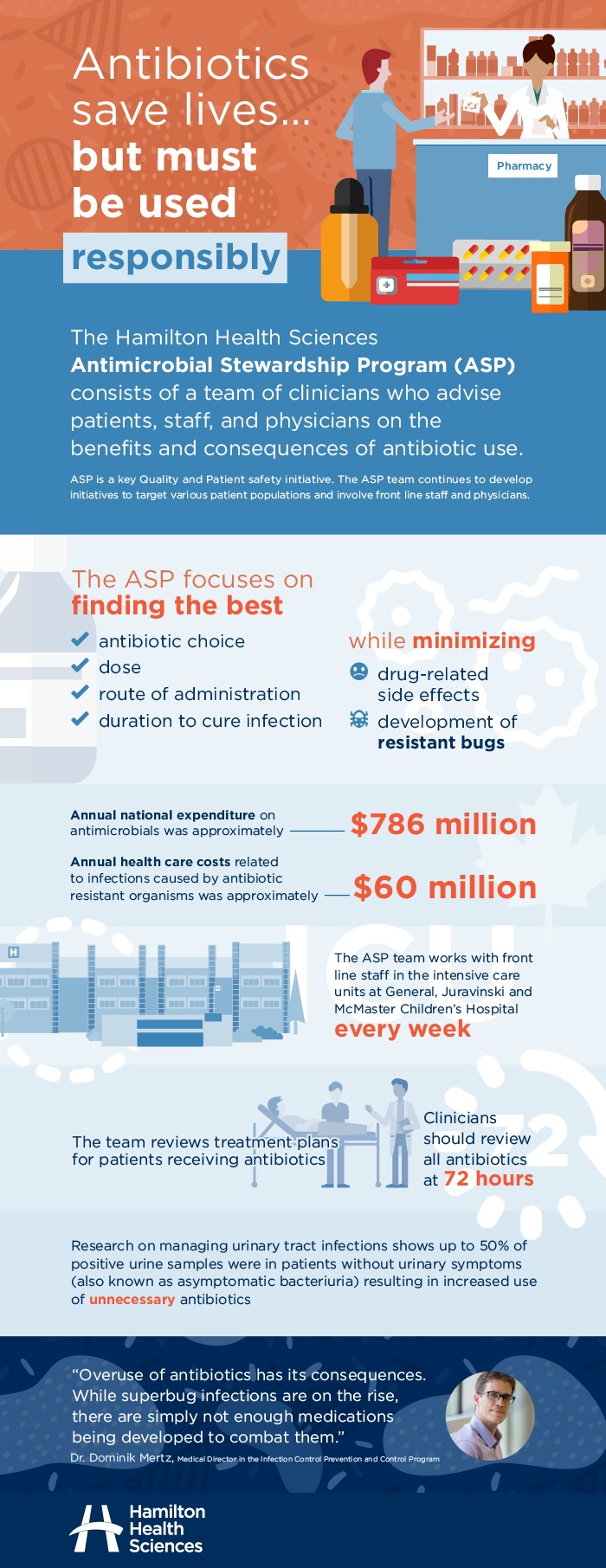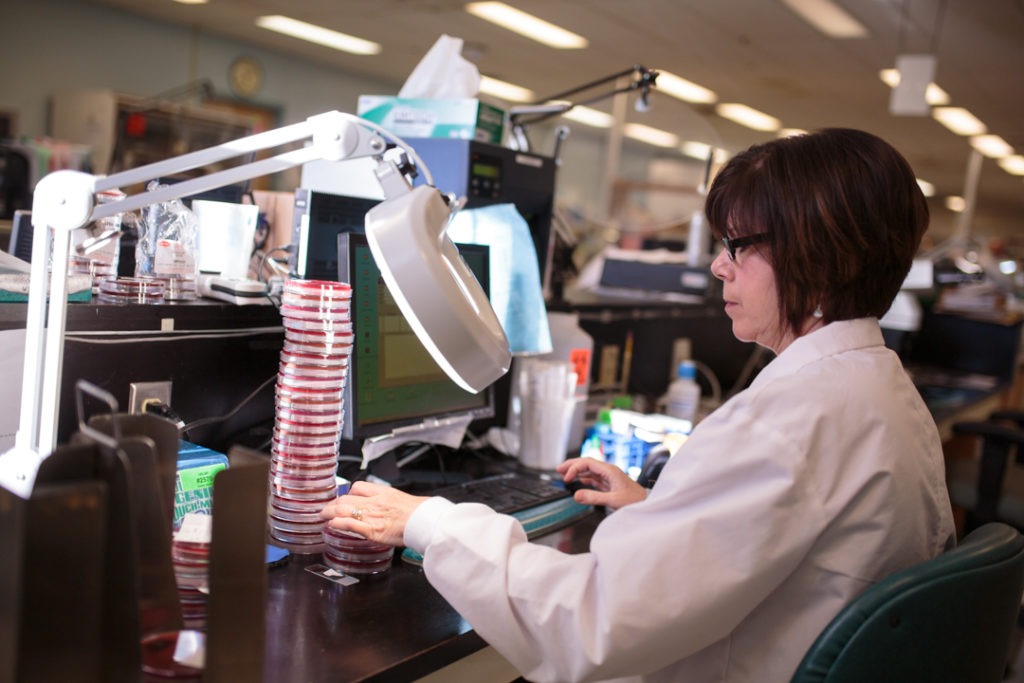
The fight against antibiotic resistance: It’s everyone’s responsibility
Melani Sung, clinical pharmacist
Infections are one of the most common reasons people seek medical attention. Bacterial infections can be treated with antibiotics, a type of medication that kills bacteria or stops it from growing. There is no doubt that antibiotics save lives, but there can also be downsides to prescribing this type of medication.
In Canada, we spend about $780 million on antibiotics each year. Hospital purchases account for 13 per cent of this total. These numbers show that we are prescribing a lot of antibiotics, likely too many.
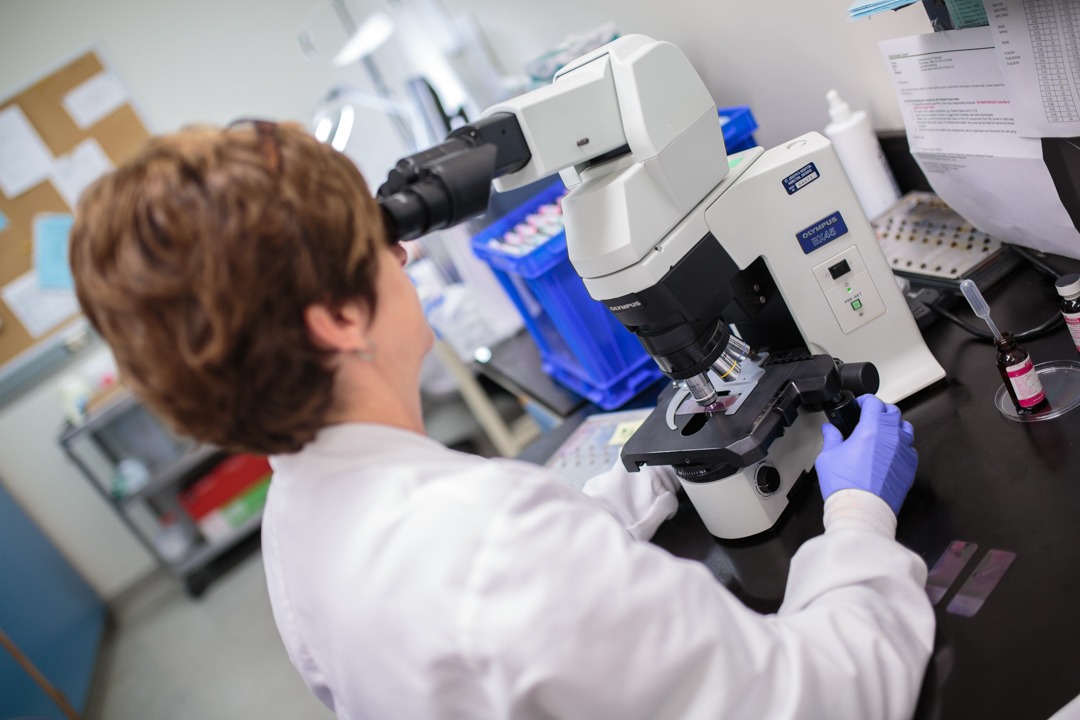
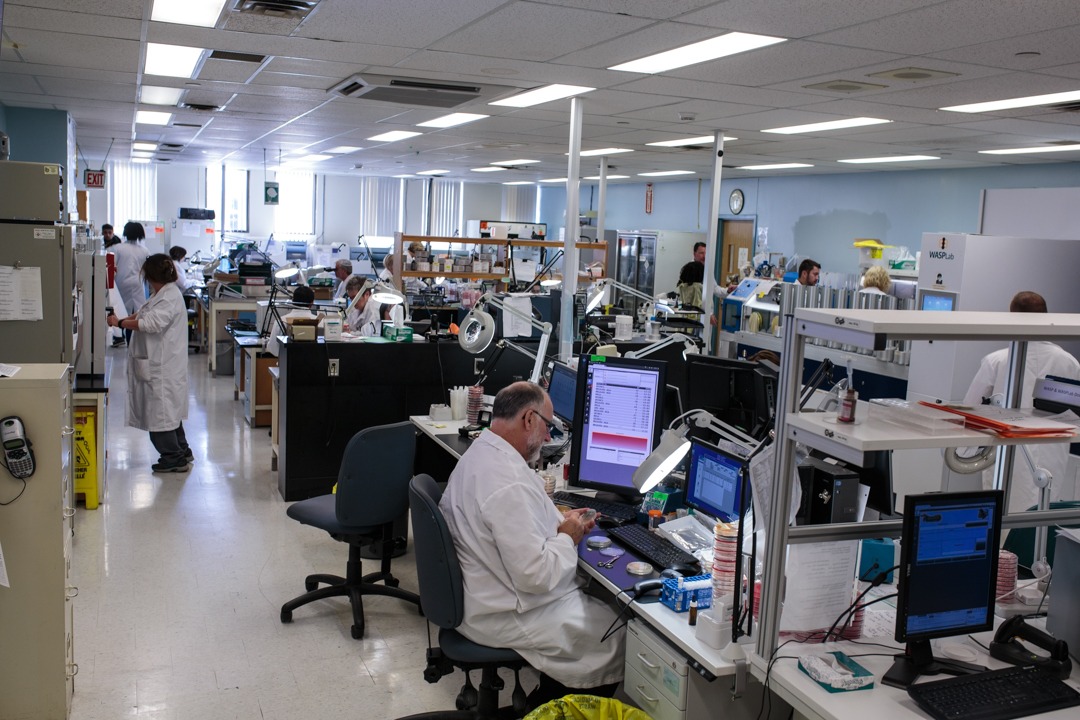
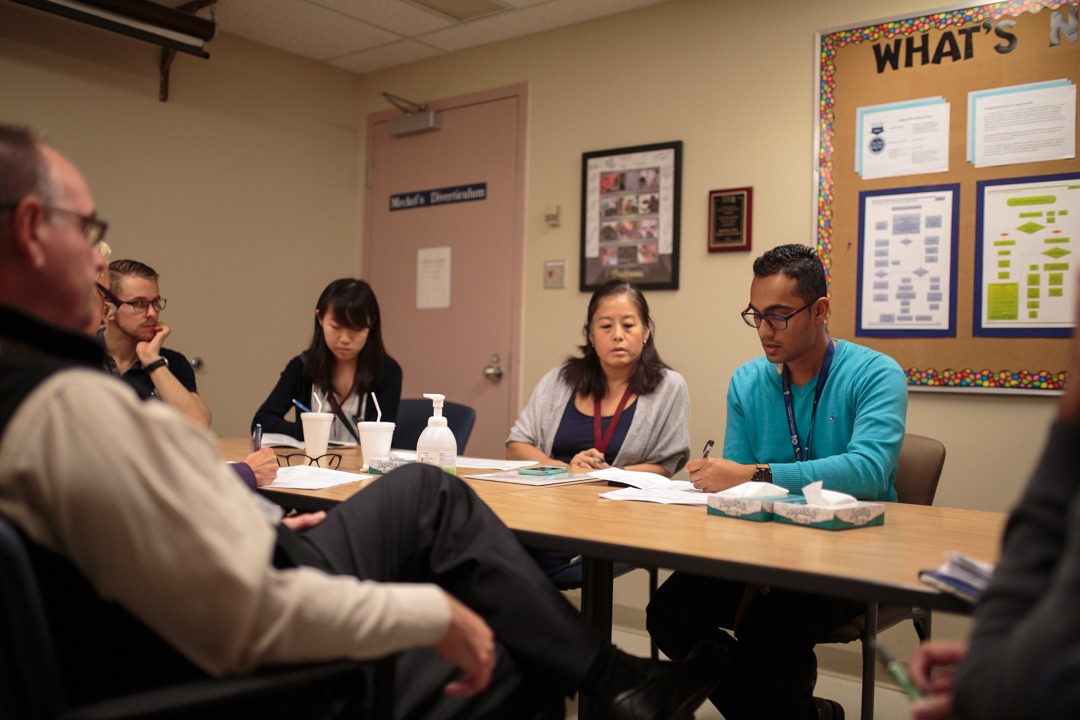
Unfortunately, overuse of antibiotics has several consequences. You may have heard about increasing rates of Clostridium difficile infections—often referred to as C. difficile—or infections caused by superbugs that are hard to treat. The bacteria that cause these infections have mutated because of excessive antibiotic use, and we are running out of medications to treat them.
“the World Health Organization (WHO) has identified antibiotic resistance as one of the top public health threats of the 21st century.”
These concerns are gaining attention from the medical community, as well the public. In fact, the World Health Organization (WHO) has identified antibiotic resistance as one of the top public health threats of the 21st century. The problem is that while resistant bugs are on the rise, we aren’t developing enough new antibiotics to combat them.

That’s why it’s so important to focus on the best way to prescribe antibiotics, especially in hospitals. Hamilton Health Sciences (HHS) has a robust Antimicrobial Stewardship Program (ASP) that helps frontline staff choose the right antibiotic for the right patient. ASP ensures antibiotics are only being used to treat suspected or confirmed bacterial infections. We manage the selection of different types of antibiotics, dosing, and how they’re administered. We also suggest the appropriate duration of antibiotics in order to cure infections, but minimize drug side effects and antibiotic resistance.
“It’s important to think twice before prescribing or requesting antibiotics year round”
Under the leadership of Dr. Dominik Mertz, our multi-disciplinary group works in collaboration with many departments across HHS. We coordinate initiatives with the goal of promoting appropriate and safe antibiotic use in patients. For example, ASP has partnered with the intensive care units (ICUs) across HHS to conduct weekly rounds. At these rounds, frontline staff can get our input on treatment plans that include antibiotics, and review effective use. We also review all cases of hospital-acquired C. difficile infections and develop standard treatment guidelines for various infections. Recently, we launched an initiative to reduce unnecessary antibiotic prescriptions for patients who have a positive urine culture but don’t complain of urinary symptoms.
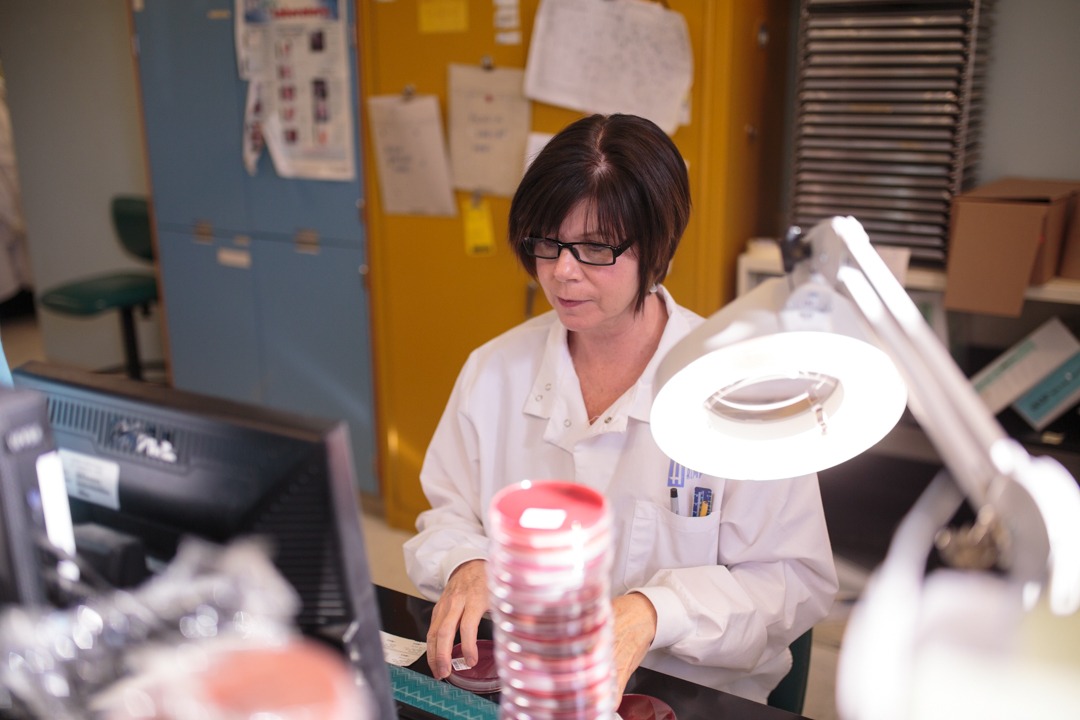
It’s important to think twice before prescribing or requesting antibiotics year round, but Antimicrobial Awareness Week (November 14-18) is a special time to remind ourselves of this important issue. Antibiotic resistance affects all of us, because resistant bugs can be passed from one person to another. The work that’s being done at HHS is just one element of a global effort to combat this problem. After all, antimicrobial stewardship is everyone’s responsibility!
